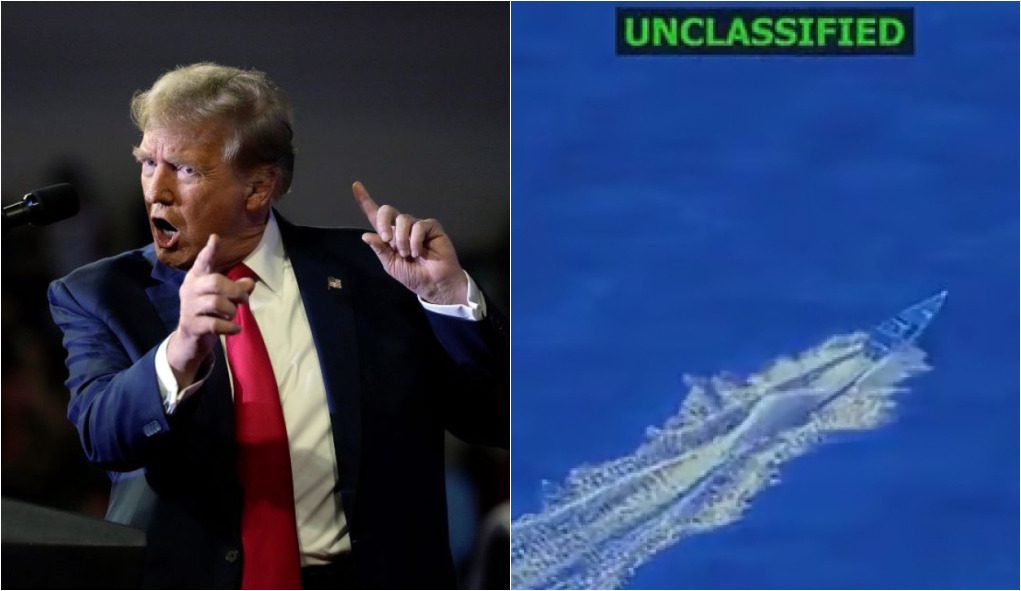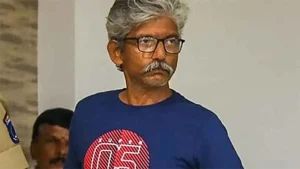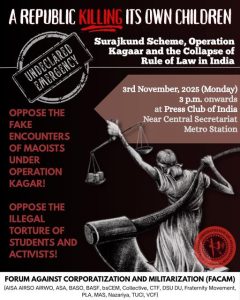
Yankee Imperialism Makes Accusations Against Colombia and Venezuela under the Pretext of Militarization in the Subcontinent
We hereby share an unofficial translation of the article from A Nova Democracia found in Nueva Democracia.
Under the pretext of the “war on drug trafficking” and “hemispheric security,” ultra-reactionary President Donald Trump declared on October 19 that Colombian President Gustavo Petro is a “drug trafficking leader” and announced the immediate cut of U.S. “payments or subsidies” to Colombia. This nonsense further deepens the offensive against Latin American nations, which already includes military actions against Venezuela, and now promotes attacks against Colombian sovereignty.
“President Petro… strongly encourages the mass production of drugs, in large and small fields, throughout Colombia,” Trump wrote on his social media account. “Starting today, these payments… will no longer be made,” declared the would-be emperor Donald Trump.
Simultaneously with the smear campaign against the Colombian nation, Yankee military forces acted in the Caribbean with attacks on vessels that the US claims are part of criminal or drug trafficking organizations. In one of these operations, a Colombian vessel was sunk by Yankee military forces. Colombia claimed that it was a civilian fishing boat, which resulted in the death of fisherman Alejandro Carranza. His cowardly murder sparked outrage among the Colombian masses, who staged large protests in Bogotá.
According to Colombian Interior Minister Armando Benedetti, “These statements by Trump amount to a threat of invasion or ground or military action against Colombia,” he said in an interview. In response, Bogotá recalled its ambassador to Washington for consultations.
The gravity of the situation is such that even bourgeois analysts admit that this is a reissue of the Monroe Doctrine, a “Monroe 2.0,” which aims to reaffirm imperial domination on the continent amid inter-imperialist struggles.
Aggression against oppressed nations intensifies
The US currently has its largest military presence in the Caribbean since the invasion of Panama in 1989, in an attempt to encircle Venezuela and other countries that are not part of its regional project.
The offensive shows that the “war on drugs” serves as a pretext to reactivate imperialist interventionism and consolidate control over the so-called “shared neighborhood.”
The government of Nicolás Maduro, for example, has been accused by Washington of being the “head of a drug cartel,” an accusation that underpins its military and diplomatic offensive. Colombia, meanwhile, a Yankee semi-colony, sees its relationship with the “metropolis” of the North suffer serious shocks: the suspension of military cooperation, the end of subsidies, and public accusations, constituting a new phase of aggression against the subjugated nation.
In a statement to the press, Petro denounced: “US government officials committed murder and violated our sovereignty in territorial waters. Fisherman Alejandro Carranza had no ties to drug trafficking and his daily activity was fishing. The Colombian boat was adrift and had a distress signal on because an engine was broken. We await explanations from the US government.”
For his part, Trump maintained his aggressive stance: “The purpose of this drug production is to sell large quantities of the product in the United States, causing death, destruction, and chaos… Petro, a poorly rated and very unpopular leader with a foul mouth toward the US, had better close these death camps immediately, or the US will close them for him, and it will not be done gently.”
Yankee imperialism: the biggest facilitator of international drug trafficking
The offensive by the Central Intelligence Agency (CIA), among other Washington agencies, against Latin American countries is not limited to aggressive diplomacy or the bombing of ships. As part of its low-intensity warfare, the CIA’s surveillance of Latin America provided intelligence to boost reactionary and anti-communist paramilitary groups in the subcontinent, which facilitated the internationalization of drug trafficking, according to academics such as Peter Dale Scott and Jonathan Marshall in their book Cocaine Politics: Drugs, Armies, and the CIA in Central America. To this day, the supposed “monitoring of drug trafficking” serves as a form of espionage against Latin American nations to impose Yankee plans for domination.
One of the summaries of the work states: “The authors maintain that the CIA helped establish or consolidate intelligence agencies in Central America that became forces of repression and whose links with other countries paved the way for illicit drug shipments.”
Along the same lines, a scientific article examining Gary Webb’s series “Dark Alliance: The CIA, the Contras, and the Crack Cocaine Explosion” states: “Evidence suggests that during the Cold War, the CIA cultivated many dubious alliances linked to drugs in the name of national security.”
Between the late 1970s and mid-1980s, Manuel Noriega, commander-in-chief of the Panamanian Defense Forces, took over the country in a military coup and served as a CIA agent in Latin America, supporting US intelligence operations against “communism.” According to Human Rights Watch, the US was aware of his involvement in drug trafficking, yet supported him politically, economically, and militarily.
On December 20, 1989, under the official justification of “protecting Yankee citizens” in the canal, “restoring democracy,” and “combating drug trafficking,” the US launched Operation Just Cause, when more than 20,000 Yankee soldiers invaded Panama and deposed Noriega.
Although the pretext was drug trafficking, analysts point out that the real motive included strategic control of the Panama Canal, maintaining Yankee influence in the region, and dismantling a government that threatened U.S. interests.
Historian Jane Franklin asserts that Panama “became the most complete example of a narco-state” under Noriega, and that the invasion marks the “ground zero of the militarization of the war on drugs.”
Large-scale militarization: the Yankee imperialists’ plan for South America’
According to a July 2024 report by the Congressional Research Service (CRS), the US maintains approximately 1,650 military personnel permanently stationed in Central and South America, as well as the Caribbean. The largest contingents are stationed in Cuba (616 soldiers) at the Guantanamo Bay Naval Base and in Honduras (365 soldiers), a country historically used as a staging ground for clandestine operations against Nicaragua, El Salvador, and Venezuela.
In addition to these fixed bases, the US operates under the concept of “facilitated military access,” which means maintaining operational facilities, arsenals, and airstrips in countries such as Colombia, Paraguay, Peru, Chile, and Brazil, allowing for real-time force projection.
Militarization has advanced even further in recent months. In October 2025, military sources confirmed the deployment of a naval force consisting of ten warships to the Caribbean, including destroyers, amphibious assault ships, and surveillance vessels. The move coincided with threats by the Trump administration against Venezuela and Colombia, under the false pretext of “combating drug trafficking.”
In addition, ten F-35 fighter jets were deployed to the base in Puerto Rico, an occupied US territory, as part of a supposed “containment operation” against cartels. However, experts in the defense of sovereignty warn that this is a growing military siege on countries that refuse to obey Washington’s dictates.
“The Pentagon no longer needs to invade to control. It surrounds, infiltrates, trains, and monitors. Militarization today is quieter, but equally violent,” says Bolivian researcher Roberto Salcedo of the Latin American Critical Studies Network.
According to data from the Council on Hemispheric Affairs (COHA), the US operates or has access to more than 76 military installations in Latin America and the Caribbean, including traditional bases, training centers, and logistics outposts. These structures, most often installed without public consultation, serve as direct instruments of political control and regional intervention.

